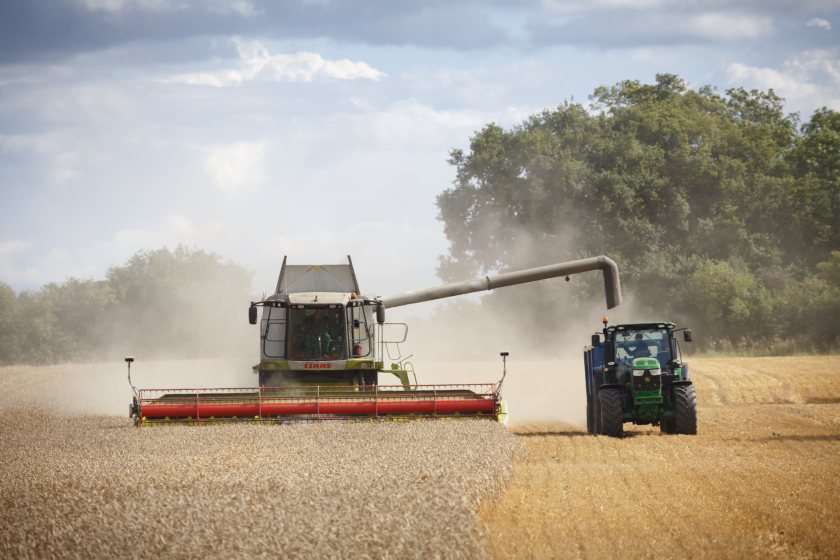
The government’s failure to address the climate crisis risks the UK being unable to produce enough of its own food, a new report suggests.
The climate crisis is having a "direct impact" on farmers and food production in the UK, researchers at the Institute for Public Policy Research (IPPR) warn.
The thinktank's report notes that livestock are increasingly exposed to heat stress, growing seasons are changing, and pests and diseases are living longer in warmer winters.
This is coupled with increasingly frequent droughts impacting crop growth, as well as flooding which is affecting soil runoff, erosion, and harvesting.
The warning comes as record temperatures in the UK last year caused widespread damage to crops, as well as significant economic loss to the farming industry.
According to the IPPR, the use of land in the UK needs to change, but responsibility for the transition to nature-friendly farming cannot be left to farmers alone, as they are "already grappling with a system that does not fairly reward them for their produce".
The report calls for a long-term vision for the future of land and agriculture, which must reflect the views of those who work in farming as well as consumers.
In this vein, its findings are informed by several community panels - convened by IPPR in Somerset, Cumbria and Kent - on how to tackle the climate and nature crises in way that is fair to farmers, farm workers and the public.
The panels called for the government to take a greater leadership role within the food system, including by providing a long-term funding settlement to support the changes needed.
They also urged greater promotion of local food, and steps to cut out unnecessary transport, processing and packaging.
The report goes on to say that a “significant shift” is needed to ensure the UK’s food security, with “robust intervention” by the government, including support for farmers.
Lesley Rankin, co-author of the report and researcher at IPPR, said the climate and nature crisis "poses one of the greatest risks" to UK food production.
"The UK government has consistently failed to treat this threat with the urgency it deserves," he said.
“It is crucial we act immediately and involve farmers and communities every step of the way."
Luke Murphy, co-author of the report at IPPR, added that the lack of a government strategy for the UK food and farming sector had "serious consequences".
“It’s undermining our ability to produce food domestically, making farmer’s lives harder, and entrenching a food system that is wasteful, bad for our health, and damaging to the environment.
“The government must provide long-term financial support for the transition, and strengthen trade policy to guarantee environmental and worker standards.
"It must protect British farmers from being undercut by food produced to lower standards abroad.”
The IPPR's paper, ‘Reaping the rewards: Cultivating a fair transition for farming’, was published on Monday (17 July).
